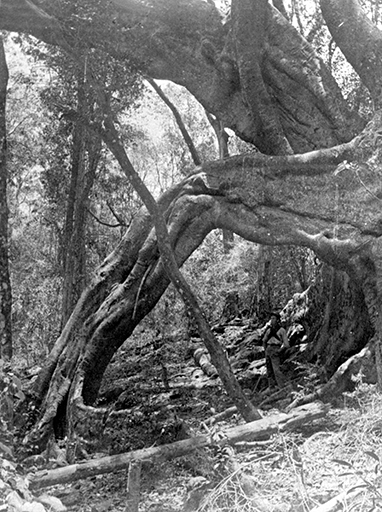Beatrice Conlon
Beatrice talks about life at Cherbourg
Interview with: Beatrice Conlon
Date of Interview: 29 January 1985
Interviewer: Susan Brinnand
Transcriber: Valarie Poole
Access the Beatrice Conlon oral history audio files and transcript on Sunshine Coast Life.
Image: Lower section of an aged Fig Tree, Bunya Mountains, 1913.
Featured
